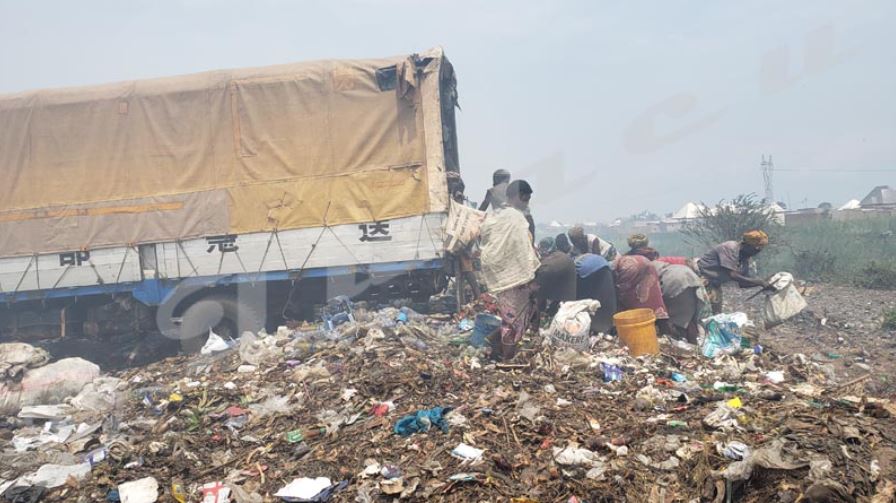The indigenous Batwa people in neighbouring Burundi have appealed to the government to come to their rescue from deplorable life.
Details indicate that the Batwa living in Nyarumanga site at the gates of the city of Bujumbura scavange from rubbish dump sites to obtain scanty edibles to survive.
“We have to resort to this dump to find food, coal and clothes. This discharge is a kind of manna for us. Without this rubbish, some would have already succumbed to hunger”, Batwa from the Nyarumanga site, met at the public dump of Mubone in Mutimbuzi commune in Bujumbura province.
Every year, on August 9, the world celebrates the International Day of Indigenous Peoples .
At 11 a.m. on August 9, trucks full of waste from various households, factories and industries in Bujumbura arrive at the public dump in Mubone. When a truck unloads, men, women and children, most of them Batwa, gather with bags to dig through the waste.
This waste contains, among other things, sharp objects and rotten products that give off a disgusting smell. Yet these people search them without gloves or boots. Some children eat fruits obtained from this waste without washing them.
The Batwa encountered at this public dump regret the plight of their lives because of poverty. For them, the International Day of Indigenous Peoples does not concern them.
“This day is for a minority of the Batwa who benefit from it. For us grassroots indigenous people, we celebrate this day in this dump. Today, there are those who are celebrating and advocating for the interests of the Batwa, but unfortunately nothing changes in our daily life,” said Goreth Nizigiyimana, from the Batwa community, living in the site of Nyarumanga.
For her, it is first necessary to meet the basic needs of her family and get out of poverty before celebrating this day.
She regrets that her children have dropped out of school due to the poverty; “The child cannot accept going to school when he has not eaten anything. If we don’t dig in this dump, we can’t have anything to eat. This mother of seven children asks any charitable soul to give her some capital to do small business.
Lack of access to land
To overcome poverty, some Batwa families have asked the government to give them land so that they can feed their families without resorting to dumping or begging.
“On the site, we were given plots for housing. This is not enough to meet the needs of the family. We need arable land to practice agriculture”, says Susanne Minani, from the Batwa community, living in Nyarumanga.
This mother of five fears that she will not be able to send her children to school next September due to the lack of means to buy school materials and uniforms.
For the president of the Association espoir pour les jeunes Batwa (Asejeba), Evariste Ndikumana, access to land remains a major concern for the majority of Batwa in Burundi.
“The Batwa do not have land, whereas around 90 % of the Burundian population lives from agriculture. This causes several Batwa families to languish in extreme poverty”.
In addition to the lack of access to land, he adds Batwa still face discrimination and the lack of healthy homes.
However, Evariste Ndikumana believes that Batwa representation in state institutions remains weak. And to propose that the Batwa ethnic group have 10% of the ethnic quotas included in the Constitution.
